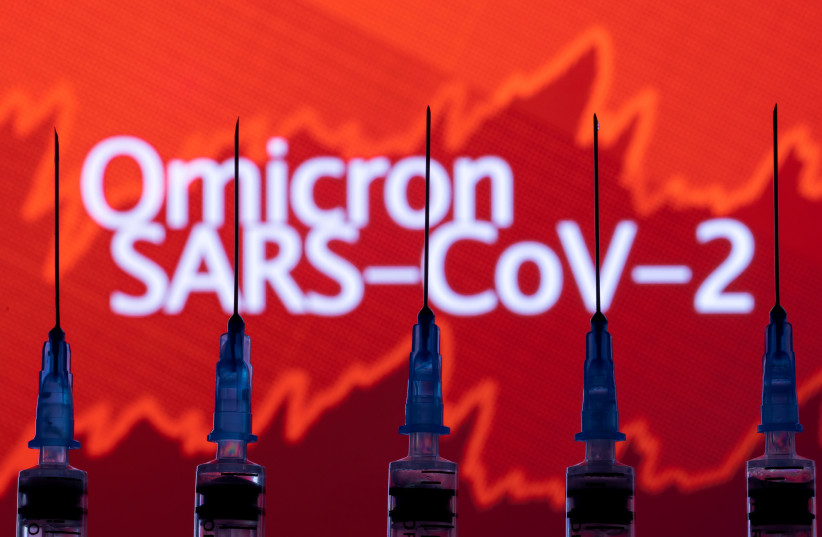Israel registered almost 5,500 new coronavirus cases on Friday – three times more than in the previous week – with almost 4% of the tests returning a positive result, Health Ministry data revealed on Saturday night, showing that the Omicron wave is running rampant through the country.
"The price of herd immunity is a really high infection rate, and this is starting to look like a possibility," Health Ministry Dir.-Gen. Nachman Ash told Kan Radio on Sunday morning.
“Here and all over the world, we have lost control of the spread of the pandemic,” said Prof. Eran Segal, a computational biologist at the Weizmann Institute of Science and an adviser to the government.
“Already today there is a high chance of encountering an infected individual,” he further wrote on Twitter on Friday. “In three days the chance will double. In a week, it will be four times more than today. The best protection against a serious illness is the vaccine, and there has never been a better time to get vaccinated.”
On Friday, Health Ministry Director-General Prof. Nachman Ash approved a fourth vaccine for residents of old age homes participating in Magen Avot V’imahot (Parents Shield) protocol, geriatric hospitals and people in the Labor, Social Affairs and Social Services Ministry out-of-home frameworks for those with two diseases. Employees of the institutions will also be permitted a fourth vaccination.
The decision came hours after Ash green-lighted the shot for several categories of patients with severe immuno-depression, including transplant recipients, patients with auto-immune or rheumatological diseases that are treated with specific drugs, and patients with blood cancers.

While the Pandemic Response Team, which advises the Health Ministry, recommended a fourth vaccine for all Israelis over 60 on December 21, Ash has yet to approve that decision.
In the past week, over 40% of the new cases identified were recorded among people vaccinated with a booster.
The rapidity of the surge due to the Omicron variant has been unprecedented.
In the past seven days, Israel recorded almost 24,000 new cases, marking a 170% increase from the previous week.
The number of seriously infected patients also registered a significant increase over the weekend. After several days stalling between 80 and 90, as of Saturday night there were 101 such patients.
However, in the upcoming days, Israel could see as many as 20,000 new daily cases and several hundred serious patients, according to a report by Hebrew University of Jerusalem researchers.
So far, the record of seriously infected patients in the country was registered during the third wave in January, when the number topped 1,200.
On Friday, Health Minister Nitzan Horowitz sent a reassuring message to the public.
“We prepared and gained valuable time in the face of the rapid spread of Omicron throughout the world, and here, too,” he wrote on Twitter. “There is no need to panic and create panic. The apocalyptic scenarios are baseless.”
Jerusalem Post Staff contributed to this article.
